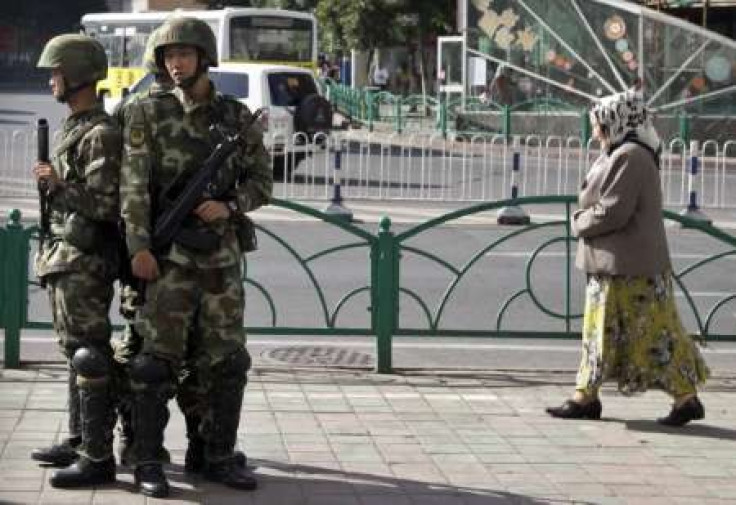China: Are the Killings in Xinjiang Terrorist Attacks or Ethnic Violence?

The attacks are sent to further tensions and resentment between the Uyghurs, a mostly Muslim Turkic-speaking people leaving in the region and the Han Chinese.
Security has been increased and security checks points have been set up throughout the city, with the deployment of paramilitary officers patrolling the streets.
Violent clashes however are still occurring and according to the web site xinhuanet.com, four suspects were shot dead by police in or Kashgar on Wednesday.
Four others were caught, but reports suggest that the police are still are looking for some of the perpetrators of the attack in which ten people, including civilians and police officers were wounded.
According Xinhuanet local sources has claimed that three people died from a blast at the scene, but witnesses insisted the victims were hacked to death by the rioters.
Chinese officials blamed the recent attack on Uighur Islamic militants campaigning for an independent homeland, and said the ringleaders received training in making firearms and explosives in Pakistan before returning to China.
They have wowed to treat the attack as "a severely violent terrorism case" that was organized by terrorism groups.
However playing down allegations that the news of the attackers being trained in Pakistan could cause a rift between the two countries, China's Foreign Ministry Wednesday praised Pakistan as a firm partner against terror and religious extremism.
Spokespersons for the Uyghur on the other hand have blamed the Chinese government, which they say has tried to marginalise the ethnic group both socially and economically.
Rebiah Kadeer, exiled president of the World Uyghur Congress, blamed "discriminatory" Chinese government policies for creating an "environment of hopelessness."
Since the attack various reports have emerged and according to Reuters, Juma Tayir, the imam at the Id Kah mosque, told reporters there have been no restrictions on any religious activities during Ramadan, which contradicts The World Uyghur Congress's allegations that China was preventing Uighurs from observing Ramadan.
Chinese media have avoided covering the attacks and its aftermath, proving that the situation in Xinjiang is extremely sensitive.
The region however has a history of violence as in July 2009 violent conflicts between the Han and the Uyghur erupted, killing nearly 200 people in the regional capital Urumqi.
According to the Chinese government, conscious about the impact of the increase of violence, efforts have been made to boost development in Xinjiang and provide better job opportunities, for the Uyghurs.
Kashgar has a population of about 600,000, about 80 per cent are Uighurs, according to the city government's website.
While Saturday attack is being treated as a terrorist attack by the authorities, tensions between the Han and the Uyghur groups seemed anchored in a long history of violent clashes and distrust, which could indicate that ethnic violence, can also be an underlying factor.
© Copyright IBTimes 2024. All rights reserved.






